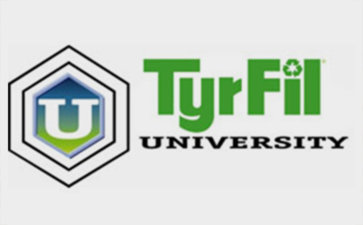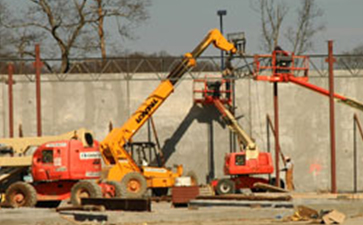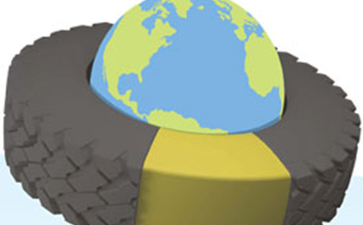Moving Our Industry Forward
The construction and Off-the-Road (OTR) heavy equipment sectors are facing the same upheaval from the coronavirus pandemic that most every industry on the planet is currently confronting. For our shared marketplace, as in so many others, there are simply no easy answers. Operators and manufacturers alike are anxious to take business activity back to “normal” levels, but all are mindful of the necessity to follow science, safety and common sense as we move forward during the devastation of a worldwide virus that has wrecked havoc on so many lives and business categories.
Without question, there have been economic repercussions to construction growth, and in tandem, to the use of heavy OTR equipment and industrial-grade tires that fuel that sector, as well as other critical industries such as mining and agri-business.. As quoted in a recent piece in Rental Management Magazine, the “GDP for the year is likely to contract 5 to 6 percent,” with “GDP loss for the second quarter likely to be in excess of 25 percent, on a year-over-year basis.” These are strong numbers affecting a wide swath of the American economy and including much of the essential supply chain that is important to many of the sectors intimately involved in the rental equipment industry. The source in the above mentioned article is Scott Hazelton, Managing Director of HIS Markit™, which is the economic forecasting firm that provides data for the ARA Rentalytics™.
In the article, Hazelton notes that while this scenario is a clear shock to the system and certainly eliciting a deep recession, it doesn’t stem from a “fundamental weakness” in the economy. In other words, we are not—at least at present—suffering from a complete collapse and he believes that “some industries will start to see improvement in the third quarter.”[1]
While this is good news, many of the biggest concerns lie in the feasibility of maintaining and reactivating the supply chain. According to Deloitte, “As the COVID-19 crisis continues, many global industrial product companies are facing challenging times including production stoppages, due to supply chain disruption, cost escalation and workforce dislocation.” And, the OTR marketplace won’t be immune from these challenges.
On the construction development front, as also cited in Rental Management Magazine, declines in new residential housing spending are expected to approach 30 percent, while commercial building will likely be down 20 percent. Although initially, the construction space was expected to be spared the brunt of damage during the COVID-19 crisis, Hazelton indicates that “evidence is now overwhelming that a significant retrenchment is imminent.” To this effect, Construction Business Owner reported a construction unemployment rate of 16.6% in April.
While this is a bitter pill for any industrial sector to swallow, there are some weather vane indicators about the construction space in particular that shine a brighter light. For one, construction services are considered in most regions to be “essential services” and as the national economy is now opening up, many hope that the backlog of stalled projects can reinvigorate. How quickly this can happen only time will tell, but the industry will eventually rebound. And in part, those companies poised to command the strongest fiscal health and productivity will be those best positioned to use available resources and technology to full advantage.
As business begins to reopen and projects start to remobilize, on-the-site construction project managers will want to be as mindful as possible about their equipment and tire technology choices. After all, when budgets are tight, the last thing any project manager wants to encounter is faulty vehicle operation in the field.
Savvy operators can use this period of reconfiguring business operations to take note of the following:
- Check the quality and overall efficiency of their heavy equipment fleet.
- Ensure that OTR vehicles have received the proper safety checks and are in full maintenance compliance—meeting necessary engineering, construction, transportation and human resources codes.
- And, to make certain they are opting for flat free tire technology such as TyrFil™ to prevent downtime and safety mishaps in the field due to unwanted tire damage or punctures.
As the construction sector looks to bounce back, fiscal spending will be tighter than ever and it will be imperative that tire protection solutions deliver maximize ROI and impact. Any construction site manager knows that an unexpected flat on a critical piece of earthmoving equipment such as a bulldozer or excavator can be devastating to managing timeliness and precious expenditures.
OTR tires filled with TyrFil™ (an injectable, sustainable polyurethane “foam fill”) prevent unnecessary flats and tire punctures on-the-job. Traditional pneumatic air-filled tires are highly vulnerable to damage from typical worksite debris and clutter, such as sharp rocks, glass, metal objects, nails and rebar. TyrFil™ eliminates this threat—and the technology also offers the flexibility of customized durometer selection suited to the particular needs and functionality of different OTR jobs and usage applications—something that traditional solid apertures can’t offer.
Moving forward, proper tire selection will be just one key item on an essential checklist that, collectively, can help contribute to the smooth operations that will become more important than ever to the success of construction firms and heavy equipment rental managers—as America emerges from the economic shutdown of these past months. Prudent safety on the job, proper social distancing, facial masks, and compliance with expanded OSHA guidelines will all be part of a new paradigm the industry can and must embrace to survive and flourish in the months ahead.
Carlisle TyrFil continues to stand shoulder-to-shoulder with our valued dealers, OEMs and international distributors as together we navigate new pathways to excel within our industry. We hope to remain a steadfast and dedicated partner in this venture, committed as ever to delivering the quality product, customer service and supply chain reliability that has been the bedrock of our reputation in bringing TyrFil™ to market for the past nearly five decades.
In good health,
Carlisle TyrFil
[1] Rental Management Magazine, “Understanding the Economic Impact,” May 2020, Wayne Walley
Read related news: Market Outlook for the OTR Tire Industry


